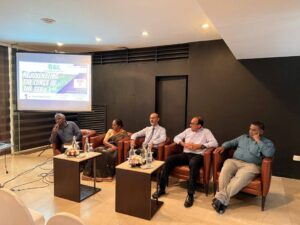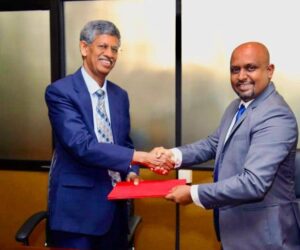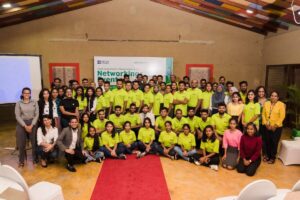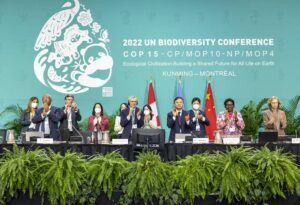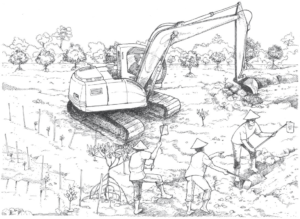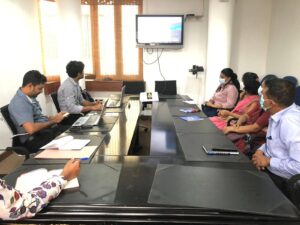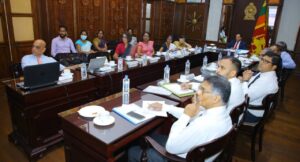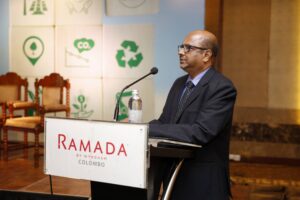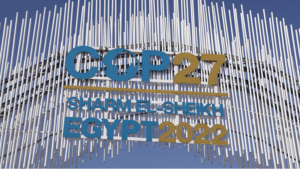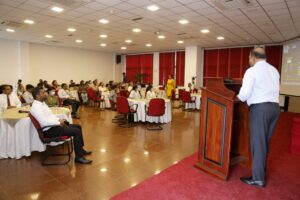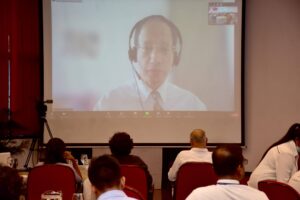At the global level, Extended Producer Responsibility (EPR) systems are successfully implemented through a participatory process called Producer Responsibility Organizations (PRO). In Sri Lanka, knowledge and understanding among stakeholders on successful EPR models implemented in other parts of the world are currently inadequate. Following the EPR Roadmap, the Ceylon Chamber of Commerce (CCC) together with the Ministry of Environment, the Central Environmental Authority (CEA), and Biodiversity Sri Lanka (BSL) have taken steps to implement EPR for plastic waste voluntarily targeting PET and HIPS through a project supported by USAID’s Clean Cities Blue Ocean Program.
At the outset, two private sector consortia have been developed through extensive consultations with corporate entities involved in importing, manufacturing, and using Poly-ethylene Terephthalate (PET) and High Impact Polystyrene (HIPS) respectively, in order to coordinate collect-back/recycling of plastic packaging in Sri Lanka. The private sector consortia have initially been established under the auspices of the CCC and BSL, with a view to subsequently incorporate as PROs. The main role of the two private sector-led consortia would be to support the realization of annual collect-back targets to be assigned by the Plastic Expert Committee (PEC) of the CEA in close collaboration with all relevant stakeholders. Assigning annual collect back targets will be based on volumes of plastics consumed by corporates. The project will create the necessary enabling environment in collaboration with relevant Government Agencies. This includes establishing an online Plastic Waste Reporting System and developing a verification system for EPR on plastic waste management. The consortia will operate on a not-for-profit basis.
Membership of the private sector consortia is open to brand owners, plastics importers, and packaging manufacturers dealing with PET and HIPS. Calling for membership is ongoing through relevant sectoral associations and public advertisements. In order to facilitate collection and recycling programs efficiently, the project will encourage tri-partite partnerships amongst corporates dealing with PET and HIPS, collectors, and recyclers, which will eventually enable the achievement of assigned collect-back targets.
The two private sector consortia will offer multiple benefits to its membership. They will support the generation of economies of scale, the reduction of EPR costs for individual companies, enhancing collective bargaining power, and adopting a high-impact country-focused, solution-oriented approach to plastic waste management, which will be more efficient and effective compared to the present CSR and marketing led collection/recycling initiatives confined to a few leading corporates.
The project will facilitate many functions of the private sector consortia such as acting as the interface between the CEA and the private sector, promoting membership in the consortia, coordinating the achievement of EPR collect-back targets assigned to its membership, facilitating incentivization collectors/recyclers by brand owners, importers, and manufacturers, ensuring data collection and verification of collect-back/recycling volumes, and reporting to the PEC of CEA on an annual basis, on behalf of its membership.
Furthermore, the project will implement directives received from the Project Steering Committee (PSC) established to oversee the overall implementation of the Project, undertake awareness campaigns to educate the public on responsible waste disposal, with a view to an increasing collection of post-consumer plastic waste and obtain and collate information and intelligence on the gaps, infrastructure needs, and other requirements to be supported to popularize collect back/recycling of plastic waste from industries and households. The two consortia will initially be advised and guided by the PSC.
Recently, identified entities in the PET and HIPS domains were invited to join as members of the PET and HIPS consortia. More than 31 companies, including key market leaders, have already joined the PET consortium. Most notably, when it comes to soft drinks market share, the PET consortium has already covered more than 70% of PET usage in Sri Lanka. More companies are currently joining both consortia. Cargills Ceylon PLC, which is one of the largest conglomerates in the country has already joined the HIPS consortium.
There are a number of SME-type water bottlers that operate in isolation and are geographically dispersed all over the country. These SMEs are not connected to any of the national-level policy dialogues. Even though their PET usage is insignificant and incomparable with other medium to large-scale PET users, the project has been making attempts to educate and engage them into the EPR system.
The 2nd PET and HIPS Consortia meetings were conducted in February with around 50 manufacturers, users, and brand owners in attendance. Overall, the participants were enthusiastic about engaging in discussions and they maintained a positive view towards the implementation of EPR on plastic waste in a voluntary basis soon. This consortia-based EPR implementation on plastic waste could be considered a trailblazing achievement, not only in Sri Lanka but also for the South Asian Region.



